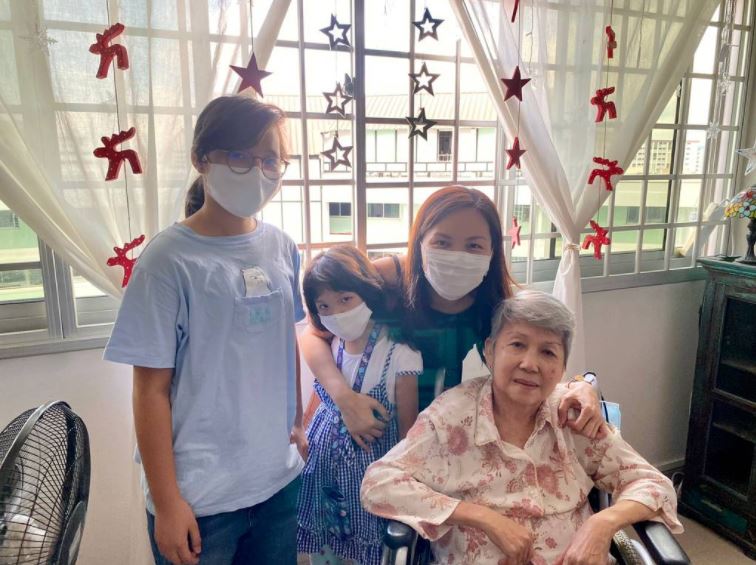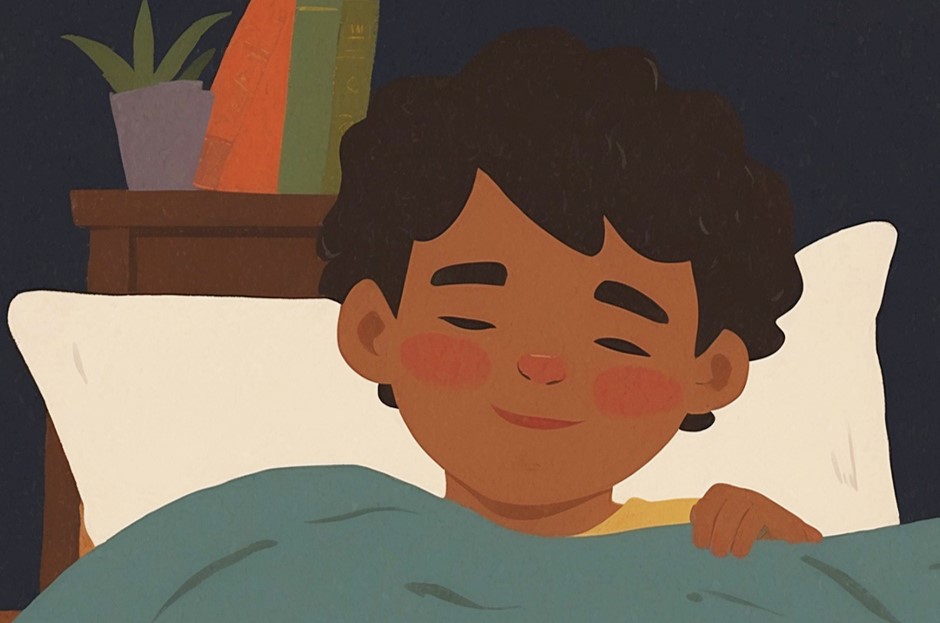Armed with a number of parenting guides and tried-and-tested strategies, I had felt relatively well-equipped to handle my two children’s tantrums and meltdowns when they were younger.
Now that my firstborn is 14, I no longer feel as prepared.
Most parents would agree that even in the best of times, dealing with teenagers can be tricky.
Add the uncertainties of a worldwide pandemic into an already-complex parenting period, and it is no wonder I often feel like I am grasping at straws these days.
There have been moments of sullenness and shrill outbursts of ‘I’m so sick of Covid.” Angry tears have been spilled; harsh words have been said (I am guilty as well) and regretted.
This makes parenting a teenager sound particularly challenging, but if I were to view this new world through my teenage daughter’s eyes, then it is entirely understandable why my once-smiley, carefree child sometimes seems so angry, stressed and frustrated now.
How Covid-19 has made the teen years extra-challenging
For adults and children alike, the isolation and uncertainties of the past one-and-a-half years have been unsettling.
While learning in school has mostly continued over the past year, social interactions have not been the same.
For teenagers entering a developmental milestone in which social and face-to-face interactions are essential and formative – not to say the fun part of going to school – it means missing out on some of the biggest moments in their growing years.
My daughter entered secondary school at a time when Covid-19 just hit, so she has not experienced the joys of participating in events like school camps, excursions and festive celebrations over the past 18 months.
While the school has attempted to replicate certain events online and I am grateful that the teachers are trying their best, it is not the same.
Likewise, family traditions like extended family dinners and birthday celebrations have been replaced by dining at home and Zoom calls.
She has not seen either of her great-grandmothers, both in community-based residences, in person since Chinese New Year this year. Pre-Covid, we used to meet them almost every week for dinner. Thinking about that breaks my heart.

This was taken in Dec 2020 – the last time my daughters could touch their great grandmother. Since then we have had to see her at a distance.
“Remember, how all of us used to be able to do a fun walkabout with lanterns and go crazy at school carnivals? Remember our family zi char dinners?” she said wistfully recently, while reminiscing about the days when group hugs, singing and laughing aloud in public, and sharing food with friends were not taboo.
Additionally, an unfortunate injury that she incurred recently, affecting her mobility, has further heightened her stress, anxiety and state of disappointment.
Maintaining a sense of routine, finding meaningful activities
But Covid-19 and teenage angst or not, I recognise that teaching my child to navigate changes in life and cope with stress is important.
Amid the changes of the past year, I discovered that maintaining structure and routine at home helps.
For instance, bedtimes, homework and revision timings remain the same during the school week, even when there is home-based learning or when Covid-19 restrictions kick in. On weekends, we might be a bit more adventurous and explore new hobbies, like baking or calligraphy, or places of interest.
 During most of last year, we had a foldable table set up for table-tennis.
During most of last year, we had a foldable table set up for table-tennis.
Since forming friendships and socialisation are an important development phase during adolescence, I encourage my daughter to spend time with her classmates, even if it is via online platforms.
Yes, this means a bit more screen time, but I feel that at this time, it is necessary to take a small step back since this is one way for teenagers to continue to interact amid social distancing. There are still limits, but I am a bit more flexible now.
She has taken to revising her homework and hanging out with her friends virtually on Google Meet. I am happy to hear her and her friends joking, laughing and singing together.
As uncertainties can leave one feeling unmoored, I encourage my daughter to find purpose in activities that she has control over. She has found a sense of fulfilment in coaching my friend’s nine-year-old in Math and seeing her gradually improve over time.
In between revising her school work and tackling homework, she explores new cake, cookie and dessert recipes over the weekends (my jeans are now bursting at the seams after sampling all those yummy baked goods, but that is a good problem).
Understanding teen vulnerability and behaviour
With advice from acquaintances in the youth mental health sector, I have also become more understanding of my teen’s behaviour.
As my acquaintance explained, all behaviour is a form of communication, and this is especially so for children and teens. One should not take the child’s bad behaviour personally and think it is targeted at them as the parent. It could be a sign of stress, anxiety or response to trauma.
So, one of the first few things that I did was to reduce my parental ego. It is all too easy to fall into the trap of “just do what I tell you”.
This authoritarian parenting approach would likely backfire with teens and would shut down an open and honest communication channel with the parent, which is so important as we need to guide our children towards healthier coping strategies when stress threatens to overwhelm them.
For instance, I taught my daughter how to pace herself in preparing for her exam. When she was suffering from chronic pain after her injury, she learnt breathing exercises to find relief instead of lashing out at someone.
Tamping down my ego has also helped me recognise signs of emotional upheavals in my 14-year-old, which may not always manifest as sadness or moodiness
A counsellor who works with youths, who have experienced trauma, shared with me that adults should be aware that teens usually do not show their vulnerability the same way adults do.
Instead of crying or appearing depressed, behavioural issues may show up. They can appear angry, irritable, have sleep problems, show lack of interest or even engage in disruptive behaviour.
I learnt to take a step back when my teenager expresses anger and frustration. As a parent who has gotten used to running a tight ship at home, it is not always easy for me. I remind myself that it’s not about me. She is not angry at me.
So, instead of viewing her outbursts as a challenge to my parenting methods or defiance, I now give her space to recalibrate her emotions before venturing into more meaningful conversations to help her sort out her problems.
I have also discovered that sometimes, there is simply no need for long-drawn lectures and logical explanations on what went wrong.
After all, what every child needs – whether they are still a baby, in preschool or at the cusp of adulthood – is a trusted adult who would stand by them for better or worse.
So, when the calm settles after a fiery outburst, I sometimes simply hug my daughter and say “It’s okay to be upset. I love you”. It works wonders.
Note that I said, ‘sometimes’. Mummy is not perfect either.





.jpg)
